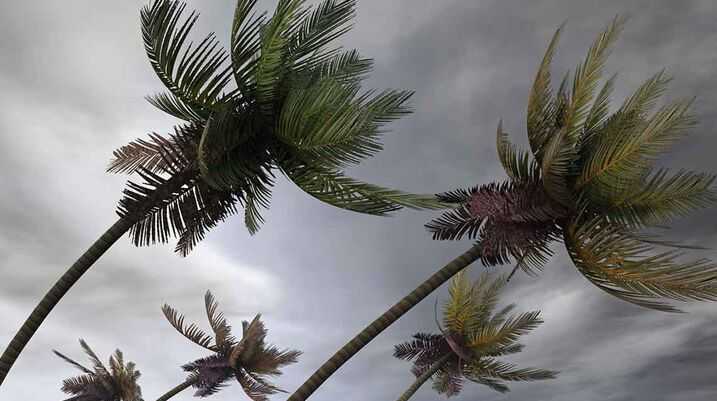Tropical Depression 9 is making its way through the Gulf of Mexico, and could potentially turn into a tropical storm as it picks up wind speed this week, reports say. The storm is threatening to dump rain across most of Florida and possibly parts of Georgia and South Carolina. But in the event of the storm, are St. Augustine residents prepared for the predicted heavy rainfalls and flooding?
Florida’s Department of Emergency Management director Bryan Koon told NBC news that as the system moves, it will evolve to pose a greater risk, and that “we are urging everyone to remain vigilant and to prepare for this possible scenario.”
While the the National Hurricane Center has not issued a land warning for the area, the city’s residents might want to take steps to better prepare themselves for the storm ahead.
Create a Family Emergency Plan
Before a storm hits, it’s good to have a family emergency plan in place. The U.S. Department of Homeland Security’s Ready initiative provides a plan that asks each family member to fill out such information as names, date of birth, social security numbers, and any important medical information that pertains to each individual.
The plan also establishes out-of-town contacts and a meeting and evacuation place in case any family member is separated during the storm.
Prepare Your Home
The Red Cross urges homeowners to take certain precautions in and around their home prior to a storm. This includes removing anything that is outdoors and can be picked up by wind (such as bicycles and lawn furniture) and moving it inside.
Unplug small appliances from electrical sockets, too, the Red Cross says. Also, close all windows, doors, and hurricane shutters. If you do not have hurricane shutters, it’s safest to close and board up all doors and windows with plywood.
Build a Supply Kit
Ready.gov lists out a thorough supply kit that all families should have ready in the event of a storm. This includes one gallon of water per person for at least three days to be used for drinking and sanitation, as well as a three-day supply of non-perishable food.
Other necessities include:
- Battery-powered radio to monitor storm updates
- Flashlights
- Extra batteries
- First Aid Kid
- Local maps
- Cell phones with chargers, a power inverter, or a solar charger
Plan Your Evacuation Strategy
The Federal Emergency Management Agency calls for an evacuation strategy. In the case of a hurricane or tropical storm, you may have one to two days to prepare and properly plan places where your family will meet, within and outside of your neighborhood.
The agency says you should keep a full tank of gas in your car if an evacuation seems likely, and half a tank at all times in case of an unexpected evacuation. Familiarizing yourself with alternate routes is also important, since some roads can be flooded and dangerous to drive through during a storm. This allows you to have multiple options in various directions to escape. And lastly, leave early enough to avoid being trapped by severe weather and traffic, according to FEMA.
Gather Documents
This element of safety may not always come to mind at first, but gathering the following documents is important in any severe weather situation. Because you and or your family may need to relocate for a period of time, or if your house suffers from severe flooding, it is important to have certain irreplaceable documents, or copies of such documents, at the ready.
This includes proper identification, which will be required to enter most shelters, as well as family records such as birth, marriage, and death certificates. It is also smart to keep an extra supply of your medications, since flooding may cause closures of pharmacies. Also have some cash, because power outages could shut off ATMs and credit/debit card machines.
Also try to keep copies of your insurance policies in a safe, accessible place. Make a copy of the policy and store it in a safe, waterproof deposit box, along with other documents, to bring to the insurance company after the storm.
Various disputes can arise between policyholders and insurance companies. This could be true if a property was damaged during a tropical storm or hurricane. Some insurance companies are caught acting in bad faith and avoiding honoring the validity of a claim. If you’re facing or have faced such a problem, visit our insurance page to learn what a Morgan & Morgan attorney can do to help.
